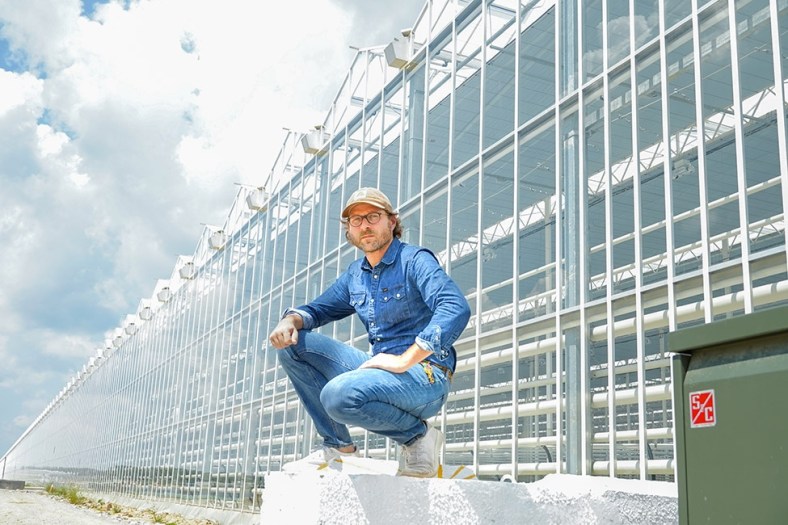AppHarvest is building a 60-acre state-of-the-art greenhouse facility in Eastern Kentucky that looks to resolve some of the major issues facing traditional field agriculture.
Jonathan Webb, founder and CEO of AppHarvest in Morehead, Ky., is a big believer in controlled environment agriculture. How big? His company is constructing a 60-acre state-of-the-art greenhouse facility in Eastern Kentucky to grow hydroponic tomatoes. Even though his background is in the energy sector, Webb said controlled environment agriculture is becoming a critical factor in solving many of the issues facing traditional field agriculture.
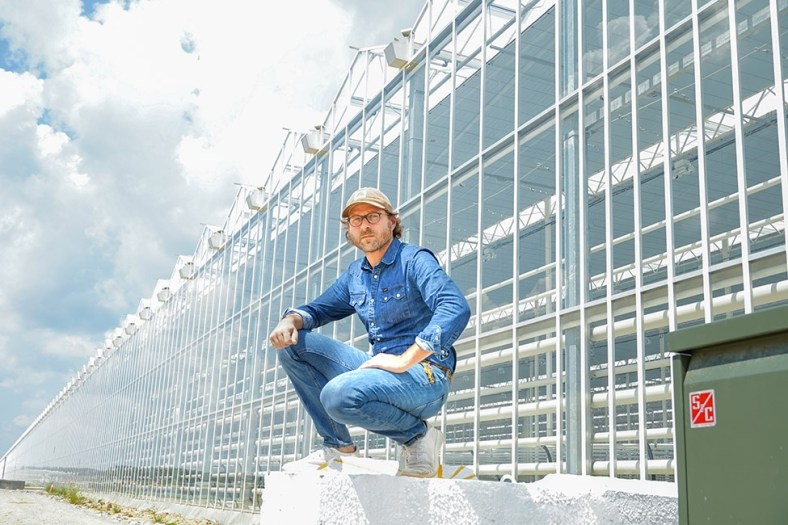
“During the last 15 years there was a transformation in the energy industry involving the rebuilding of energy systems across the United States,” Webb said. “Our team at AppHarvest believes there is an inflection point in agriculture right now where a lot of private sector capital will come into agriculture to utilize technology and infrastructure to rebuild farming in this country.
“What is happening in agriculture today reminds me of the energy conversations that people were having in the early 2000s. There were discussions about a world where we would have cars that wouldn’t run on oil and power plants that wouldn’t run on fossil fuels. I expect within my
lifetime we are going to see these things happen. The same thing is happening in the agriculture industry.”
With estimates of a 25-75 percent increase in food production needed by 2050 to meet the demands of the world’s growing population, Webb sees controlled environment agriculture playing a critical role.
“How are we going to grow more food with increased climate disruptions,” he asked. “More food is going to have to be grown in controlled environments. CEA is ever-evolving and there is going to be a continuous escalation of private sector dollars coming into farming in the U.S.
AppHarvest wants to be a player to move the industry forward.”
A greenhouse is not a greenhouse
Webb is quick to point out that not all controlled environment production is the same.
“Technology-infused and technology-focused controlled environment agriculture is not the same,” he said. “A greenhouse is not a greenhouse. A grower can operate a plastic hoop house with no lights and no environmental control and that can be called a greenhouse. At AppHarvest we are building a state-of-the-art facility that uses controlled environment technology. That is where agriculture is going and we want to be a part of it.”
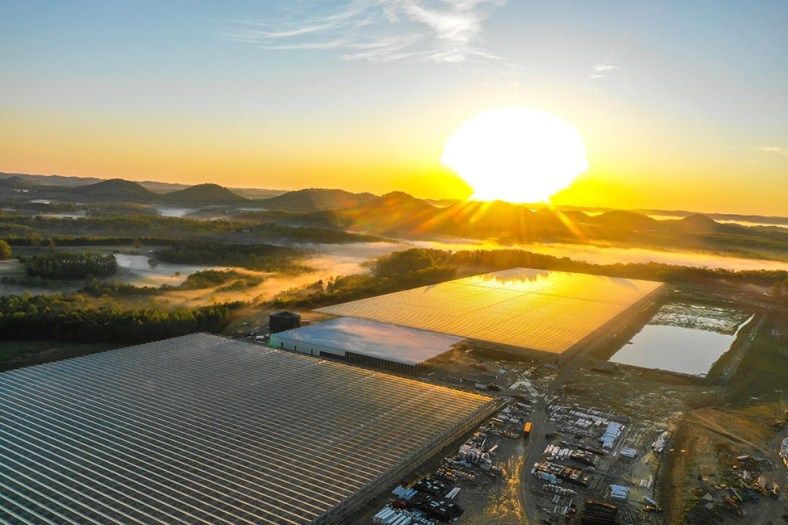
“Part of our production focus is on sustainability and utilizing technology to build the most resilient systems possible,” he said. “Our focus on people and planet is core to the founding principles of AppHarvest. As the industry moves forward it is going to be a constant evolution.
The facilities that we will be building three to six years from now hopefully will be evolving even more beyond where we are at today.”
AppHarvest’s facility will be equipped with one the largest LED installations in the world. It will also be one of the largest greenhouse operations to run completely on recycled rainwater.
“There are other greenhouses around the world that maintain retention ponds, but this facility has been designed to run completely on recycled rainwater with no need for city water,” he said. “We will have no agricultural runoff as a result and we will be putting no wastewater back into the city sewer system.
“We are trying to move the needle forward and design the most efficient, resilient and sustainable systems possible. This facility will be a good benchmark for the CEA industry to go off of.”
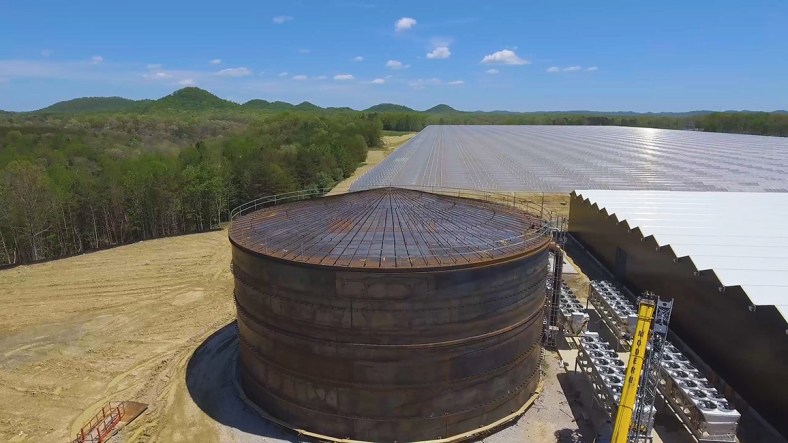
Webb said AppHarvest is working with its utility partner to purchase energy from renewable resources.
“There is a lot of hydro-generated electricity in the area,” he said. “We are working with our utility partner to develop energy assets that would allow us to receive all of our energy from renewable resources. Jackie Roberts, who recently became our first chief sustainability officer, is going to be focused on making sure we are using the most efficient designs possible while making sure we receive energy from renewable resources.”
Having previously been involved in the energy sector, Webb expects his company will be involved with the development of additional renewable energy sources as future facilities are added.
“We are working with our utility partner and I’m confident there will be more solar-generated energy systems going into the state to support our energy demands,” he said. “These won’t be built on AppHarvest farms, but we are using our purchasing power to help move our utility partner forward with us.”
Why Appalachia?
Having grown up in Kentucky, Webb has a fondness for his home state. But that’s not the only reason he’s building the AppHarvest operation there.
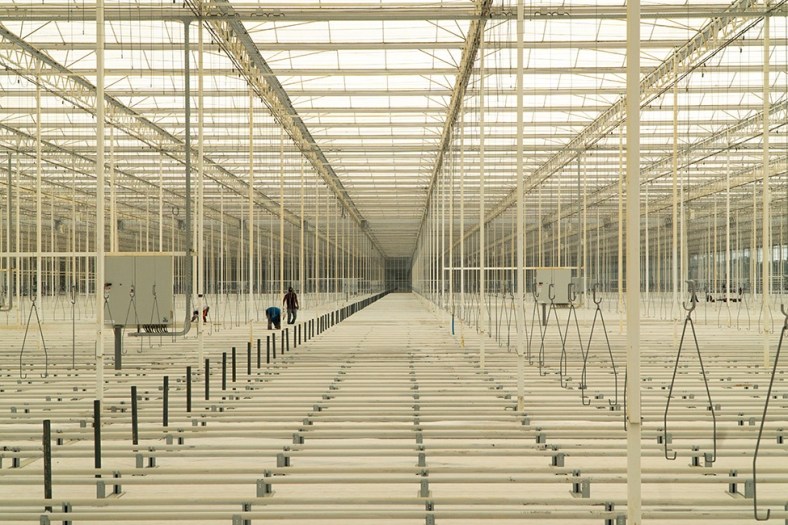
“I worked in New York City and Washington, D.C., for about 10 years before moving back to Kentucky,” he said. “Picking Kentucky is far more involved than just having a passion for the place that I’m from. There are a lot of strategic reasons. One of which is we can reach about 70 percent of the U.S. population in a one-day drive. Our products will be on the store shelves of the top 25 grocers with deliveries to the Northeast, Midwest and Southeast.
“In this facility we will be hydroponically growing two different types of tomatoes, 30 acres of tomatoes on-the-vine and 30 acres of beefsteak tomatoes. We are trying to compete with large tomato production that is done either in open fields or indoor facilities and then are trucked for
six to eight days to Eastern markets.”
AppHarvest is planning to build additional production facilities in Eastern Kentucky.
“Our company is planning to focus on the central Appalachian area because of the number of markets we can reach within a one day drive,” he said. “Right now there is no reason for us to go anywhere else.
“The increased interest in and discussions about AppHarvest from investors and public officials are about the benefits of fruit and vegetable production in controlled environments. We’re able to use 90 percent less water and produce 30 times more yields per acre and not have to worry about
the climate disruption occurring with open field farming. We see controlled environment agriculture as a big part of the solution to the problems that are plaguing agriculture right now.”
For more: AppHarvest, info@appharvest.com; https://www.appharvest.com.
This article is property of Urban Ag News and was written by David Kuack, a freelance technical writer in Fort Worth, Texas.


